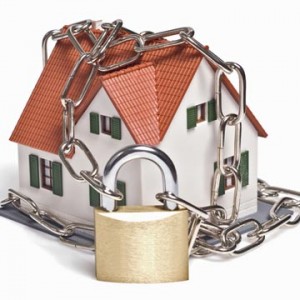 Imagine you’re at home and the doorbell rings. You go to answer the door. Who’s there? It’s a salesman claiming to be a representative from a security system company. They tell you they’re at your home to offer you a free security system. Sounds too good to be true, right? That’s because it probably is. Unfortunately, this type of scam is not uncommon in the residential security system industry.
Imagine you’re at home and the doorbell rings. You go to answer the door. Who’s there? It’s a salesman claiming to be a representative from a security system company. They tell you they’re at your home to offer you a free security system. Sounds too good to be true, right? That’s because it probably is. Unfortunately, this type of scam is not uncommon in the residential security system industry.
At Perfect Connections, Inc. we believe in helping our customers, not ripping them off. Our licensed experts install customized and comprehensive residential security systems throughout Northern and Central New Jersey. We know each home is unique, which means each system should be tailored individually. False promises, aggressive sales tactics, lengthy and overpriced contracts are NOT what we are about. Unfortunately, there are many door-to-door “sales” people that are only looking to make a quick buck. In doing so, they typically pressure you to sign high priced contracts or make a purchase on the spot. They talk fast to avoid any questions you might have, and to meet their end goal which is you writing a check or giving them your credit card information.
These so called “sales” representatives aren’t even associated with an actual security company in many instances. In some cases, like one reported by CBS Miami, these sales associates may falsely represent themselves as part of an already established company. The case in Miami involved a man named Yassiel Cabre who reportedly worked for a company called Alarm Digital Telecommunication. Instead of representing himself that way, he would tell homeowners he worked for ADT, which is a well-known security systems company. He even gave out folders and business cards that clearly displayed the ADT logo. He conned one victim into signing a 5 year contract (industry standard is typically 36months) with a company called Monitronics (ADT competitor), promising them they would be saving money because ADT supposedly purchased Monitronics. Of course this was 100% false.
Con artists or aggressive door-to-door sales people will sometimes use scare tactics to get you to sign contracts, buy what they are trying to sell, or simply let them into your home-only to steal from you. They might feed you forged crime statistics about your neighborhood to persuade you into buying what they’re offering. They do this hoping fear will get the better of you. If they’re not scaring you into buying an inadequate or fake system, they might offer freebies. A common tactic is to offer a free “system” in exchange for allowing them to put a sign on your lawn (consumerreports.org). While this may sound like an awesome deal, it’s not. As you’re caught up in the word “free,” long term contracts will be sneaked in as a formality of the deal, and you’ll sign because it seems fair. Next thing you know, you’re locked into an expensive agreement that costs an arm and a leg to cancel.
Don’t let yourself be a victim of these forceful sales strategies. There are some telltale signs that you might be getting scammed or ripped off. Check out the list below:
- Aggressive sales tactics
- Skipping right to the contract instead of taking the time to discuss and review the vulnerabilities of your home
- Limited time offers
- Companies that sell your contract to a bigger company after the initial agreement is made
- Using fear as a selling point
- Offering everything for “free”
- Claiming to be a representative from your current security systems company
- They will not produce proper identification or licensing
- Fast talking and speedy contract review
- Immediate installation without an assessment
Lesson number one: do your research before signing anything. If you suspect someone of false representation or not having the proper licensing, report it to your local authorities. Be sure you find a security systems company that is not only reputable but knowledgeable. The sophistication and effectiveness of your system is only as good as the experts who provide and install it. For over 20 years Perfect Connections, Inc. has been providing custom residential security systems to Northern and Central New Jersey. Our specialists are licensed and understand the complexities of a comprehensive system. We know how to guide you through the process from an initial on site assessment to final installation. Let us help you protect what matters most.
If you live in Central or Northern New Jersey and would like information on any of the topics discussed above, please call 800-369-3962 or simply CLICK HERE.
Image Credit: Image by Widjaya Ivan-Flickr-Creative Commons


 If you have a security system you might already understand the consequences of a false alarm. It is not something to be taken lightly and can have serious implications. False alarms can happen for any number of reasons and it’s important to understand why and how best to avoid them. No security system is perfect, and false alarms are bound to happen, but as end users and integrators it is our duty to try to minimize them. At
If you have a security system you might already understand the consequences of a false alarm. It is not something to be taken lightly and can have serious implications. False alarms can happen for any number of reasons and it’s important to understand why and how best to avoid them. No security system is perfect, and false alarms are bound to happen, but as end users and integrators it is our duty to try to minimize them. At 



